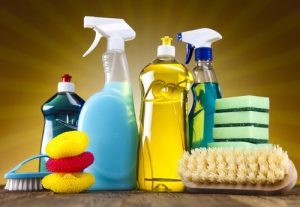
One of the best ways to prevent the spread of bacterial infections in homes is to maintain a clean home, especially the kitchen, which can be contaminated with such pathogens as E. coli and Salmonella.
People think that ‘cleaner’ is healthier, but overuse of these products are not necessary.
In the kitchen, one must follow safe food storage and preparation practices.
Don’t undercook meat and ensure that you wash vegetables with plain water, and that’s the first thing one needs to do to prevent E coli.
Along with perhaps being unnecessary, concerns have arisen about potential harmful effects of the long-term use of antibacterial cleaners, including the development of bacterial resistance.
Too much emphasis on hygiene and cleanliness in industrialized countries, resulting in reduced exposure to a range of bacteria, viruses, and other pathogens, has been linked to dysfunction of immunoregulatory mechanisms (the “hygiene hypothesis”).
Some cleaners have been linked with harmful developmental effects, such as inhibition of mitochondrial function and impaired estrogen signalling.

Guest Article by Dietician Shwetha Bhatia

